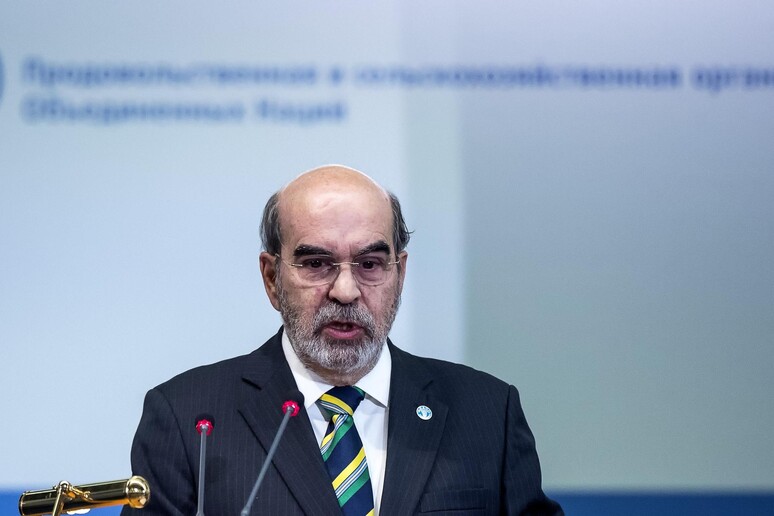Agriculture is poised for another
major transformation as gains from the Green Revolution come up
against natural resource limits, FAO Director-General José
Graziano da Silva said in a recent keynote speech at the Chatham
House think tank.
"The future of agriculture is not input-intensive, but
knowledge-intensive. This is the new paradigm," Graziano da
Silva said.
Food production increased in recent decades, but at a high
cost to the environment, generating deforestation, water
scarcity, soil depletion and high levels of greenhouse gas
emissions, he said.
From now on "nourishing people must go hand in hand with
nurturing the planet," he said.
"Current food systems have been shown to be inefficient to
eradicate hunger in the world," Graziano da Silva added, noting
that actual output is more than enough to feed the entire global
population yet still more than 800 million people are
undernourished.
Making sure everyone has access to food is as important if
not more than focusing on increasing production, he said, noting
that social protection programmes - such as conditional cash
transfers and harnessing local production to school meals to
boost both nutrition and smallholder farmers' access to markets
- must be a core part of any effort to keep the situation of
poor rural people in developing countries from worsening.
"We need to promote innovation and implement sustainable
practices that provide nutritious and accessible food, ecosystem
services and climate-change resilience at the same time,"
Graziano da Silva said.
That entails reducing the use of pesticides and chemicals in
farming, increasing crop diversification and improving land
conservation practices, among other measures.
Graziano da Silva pointed to FAO's recent report, The Future
of Food and Agriculture: Trends and Challenges, identifies 15
major trends and 10 challenges that policy makers must be
prepared to tackle in the coming years.
"All countries must commit to implementing fundamental
changes," he said.
The role of the consumer is increasingly important,
especially forms of malnutrition such as obesity are rapidly
growing, he emphasized, noting that more than two billion people
are overweight and 500 million obese.
"To provide people with healthier food, we have to act in
each step of the food system from production to consumption,"
FAO's Director-General said.
ALL RIGHTS RESERVED © Copyright ANSA











